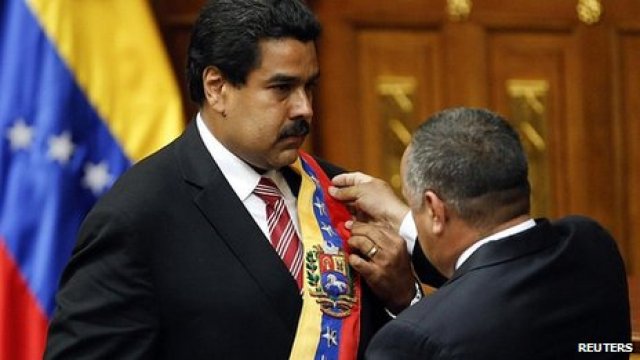
As Venezuelan people fight to have the elected government of Nicolas Maduro recognised, the nation’s democracy and election processes have been questioned by Australian media.
Australians, as well as being told how lucky they are to live in such a prosperous country, are also told how lucky they are to live in a democracy where opinions are heard, unlike in other countries.
But this onerous truism doesn’t really stand up to comparison.
There have been some historical achievements in Australia, even if this was still marked by ugliness.
Australia was one of the first places in the world to implement a secret ballot, which came into practice in 1856. Until then, in most countries people had to announce their vote in front of others. “Australian voting” eventually spread around the world as a common practice.
It was also one of the earlier countries to give women the right to vote (excluding Aboriginal women and men who weren’t recognised until 1968).
It could also be argued that preferential voting — which means that people vote transfers to their second choice if their first one doesn't get in — is more democratic than the electoral procedures of other First World countries.
But Australians can only go to the polls once every three years at the federal level and every four years at state level. In between those times, elected politicians face almost no accountability.
Venezuela, on the other hand, has a much more extensive commitment to democratic practice, despite how it is maligned in the Western media.
There are obvious differences, such as Venezuela being a republic, which means it has an elected head of state directly elected by the people — not a monarch, let alone a foreign one.
In September last year, former US president Jimmy Carter of the Carter Centre scrutinised Venezuela’s national elections and said “of the 92 elections that we’ve monitored, I would say the election process in Venezuela is the best in the world”.
US economist Mark Weisbrot wrote in the Guardian that vote-rigging in Venezuela, a frequent accusation from the right-wing opposition, is nearly impossible.
"In Venezuela, voters touch a computer screen to cast their vote and then receive a paper receipt, which they verify and deposit in a ballot box. Most of the paper ballots are compared with the electronic tally … [To] steal the vote would require hacking the computers and then stuffing the ballot boxes to match the rigged vote."
It is stipulated by law that after every election, 54% of the votes are audited to see if the votes match with the receipts given. This doesn't need to be requested, it just happens. Representatives from political parties are invited to witness the recount. No such recount happens in Australia as a matter of course.
Venezuela also has the capacity to recall a president and have new elections. If 20% of registered voters sign a petition for recall, a new election must be held.
The concept of democracy, though, has been reduced in Australia to the question just of voting for a political representative whose parties are sponsored by corporations. Less asked is the question of "democracy for whom and for what?"
Fundamental to the question of democracy is the question of rights — who has them and how they can exercise them. When Hugo Chavez was elected in 1998, Venezuela was formally a democracy, but with limited rights and with a system difficult for the poor to take part in.
The newly elected Chavez government drafted a new constitution that enshrined fundamental rights and declared itself a “democratic and social state of law and justice”.
In Australia, there is no bill of rights, constitutional right to freedom of speech, right to health care or education, or the right to be free from discrimination.
However, even radical constitutions remain only words unless they are implemented. Venezuela’s approach was to implement “popular power”, and put power directly in people’s hands.
This has included the organisation of communal councils, in which local communities oversee and implement local initiatives, and the extension of popular power into workplaces.
Many corporations have been nationalised and moved under workers’ control. Two hundred thousand workers are now involved in running their workplaces, and a further 2 million are involved in cooperatives.
Of course, there are still many problems within these initiatives and there is a need to extend them and deal with other issues like corruption, oil dependency and a lack of material advantages that Western countries have.
Australia has its own history and will develop along different lines to Venezuela. But this does not mean Australians should be complacent with democracy. Democracy needs to be conceived of as not just existing in ballot boxes but in the exercising of rights in the public sphere, private sphere and in workplaces.
Venezuela shows that the only way to deal with big social issues is to extend democracy or as Chavez put it: “The only way to overcome poverty is to give power to the poor.”